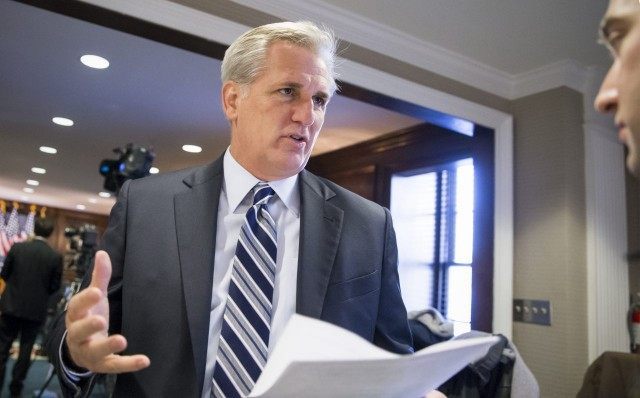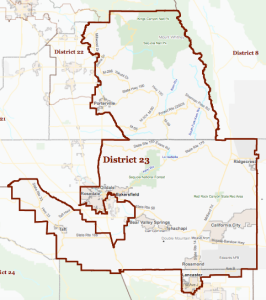Editor’s note: The presidential nominating contests in both parties will come down to the California primary.
For Democrats, 548 delegates are at stake — 11.5% of the total. For Republicans, 172 delegates are at stage — 6.9% of the total. Of those, for Democrats, 158 (29%) are divided proportionally on a statewide basis, while 317 (58%) are divided proportionally by congressional district, with each district providing between 5 and 8 delegates. The remaining 73 (13%) are “superdelegates.”
For Republicans, 13 (8%) are awarded statewide, with ten going to the candidate with the highest number of votes on a winner-take-all basis, and three going to “pre-determined” delegates (the State Chair, National Committeewoman, National Committeeman). Meanwhile, 159 (92%) are awarded by congressional district on a winner-take-all basis, with each district providing 3 delegates.
The result: a district-by-district battle in both parties, which we preview for you here.
CA-23: This large Central Valley district takes in the town of Bakersfield, home of House Majority Leader Kevin McCarthy, one of the most moderate Republicans on Capitol Hill. It also includes part of northeast Los Angeles County. Despite a large Latino constituency and protests by activists, McCarthy held out against the “Gang of Eight” immigration bill in 2013. Defense is a big industry, and Kern County produces more oil than any county in the U.S..
Prospects:
Democrats: Sanders will have a small amount of support in the towns, but Clinton will consider the 23rd a lock.
Clinton 4, Sanders 1
Republicans: Cruz will win easily here — and will show his strength in other part of Los Angeles County as well.
Cruz 3, Trump 0, Kasich 0
Joel B. Pollak is Senior Editor-at-Large at Breitbart News. His new e-book, Leadership Secrets of the Kings and Prophets: What the Bible’s Struggles Teach Us About Today, is on sale through Amazon Kindle Direct. Follow him on Twitter at @joelpollak.


COMMENTS
Please let us know if you're having issues with commenting.